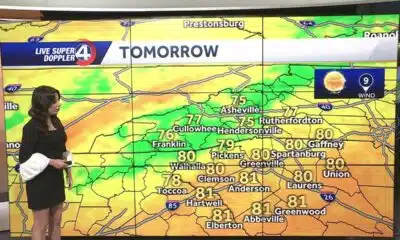(The Center Square) – A federal judge in north Texas quickly ruled in favor of the Trump administration, which sued Texas on Wednesday arguing a law allowing illegal foreign nationals to receive in-state tuition is illegal.
U.S. District Judge Reed O’Connor from the Northern District of Texas Wichita Falls Division in a three-paragraph ruling – issued just hours after the lawsuit was filed – granted the federal government’s motion and declared sections of the state law in question illegal.
The judge ruled that Texas Education Code sections 54.051 (m) and 54.052(a), “as applied to aliens who are not lawfully present in the United States, violate the Supremacy Clause and are unconstitutional and invalid.”
The judge permanently enjoined the state, including state colleges and universities, from enforcing state law “as applied to aliens who are not lawfully present in the United States.”
In response, Gov. Greg Abbott said, “In-state tuition for illegal immigrants in Texas has ended. Texas is permanently enjoined from providing in-state tuition for illegal immigrants.”
At issue is a law enacted in 2001, which was a priority bill of former Gov. Rick Perry. Perry, a lifelong Democrat, switched parties to become elected the state’s third Republican governor since Reconstruction.
The law allowed illegal foreign nationals to establish residency in Texas in order to receive in-state tuition while denying that same benefit to U.S. citizens who were not residents of Texas.
In 2020, the Young Conservatives of Texas Foundation sued the University of North Texas represented by the Texas Public Policy Foundation. They argued that the state law violated the 1996 Immigration and Nationality Act, which states that “an illegal alien ‘shall not be eligible on the basis of residence within a State … for any postsecondary education benefit unless a citizen or national of the United States is eligible for such a benefit … without regard to whether the citizen or national is such a resident.’”
The case made its way to the Fifth Circuit Court of Appeals, which acknowledged that federal law preempts state law but ruled the plaintiff didn’t have standing.
“As the United States Court of Appeals for the Fifth Circuit held in YCT v. UNT, Texas’ in-state tuition for illegal immigrants policy is unlawful under federal law because Texas does not provide that same educational benefit to all U.S. citizens, regardless of residency,” TPPF General Counsel Rob Henneke told The Center Square.
The Trump administration sued to block two sections of state law, arguing they violate federal law.
The lawsuit does not address whether illegal foreign nationals may attend U.S. colleges or receive benefits to attend, but argues that if a benefit is provided to them it must also be extended to all U.S. citizens.
The administration argued in its lawsuit that Section 1623(a) “requires that all U.S. citizens be eligible for a benefit, without regard to residency, before any illegal alien may receive the same benefit (based on residency).”
The administration argued the 2001 Perry-era law “expressly violate[d] federal immigration law’s prohibition on providing postsecondary education benefits – such as lower tuition rates – based on residency to unlawful aliens that are not available to all U.S. citizens regardless of residency.”
Judge O’Connor agreed.









































